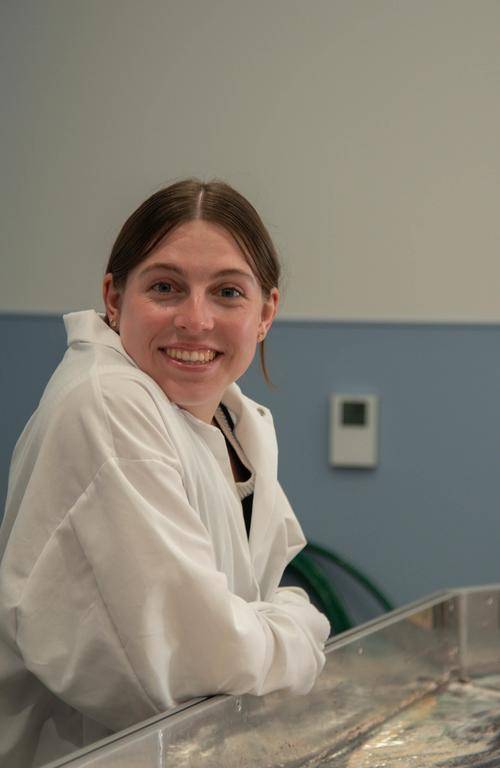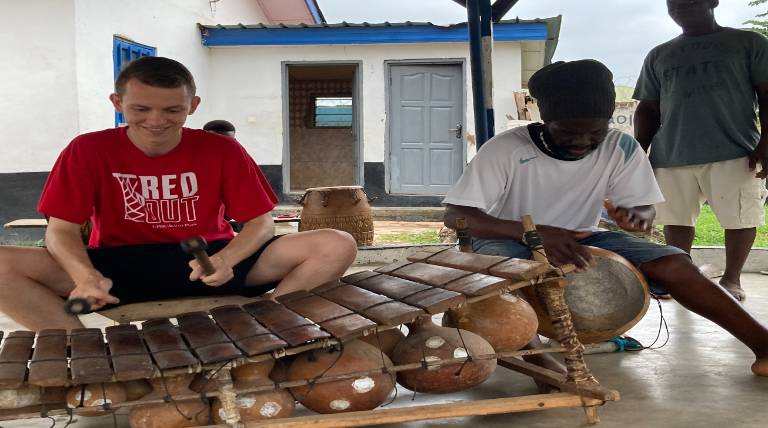Where Your Curiosity Can Flourish
The Duquesne University Honors College provides opportunities for students with exceptional academic talent to enrich their education. For 40 years, honors students have accepted Duquesne's challenge to demand more of themselves intellectually, academically and morally.
At Duquesne, we say Spiritus est qui vivificat—"it is the spirit that gives life." May your search for future academic and intellectual challenges be an inspired one!
Here at the Honors College, we embrace the Catholic Intellectual Tradition—an unmitigated
search for truth with openness to mystery. If this appeals to you, welcome home. We
seek no less than to liberate every human person from injustice, poverty and ignorance.
How the Honors College Changes Your Life
Pathways to the Honors College
The "criteria" for an invitation to the Honors College is fluid, based on SAT or ACT scores, high school GPA, and other admissions data. If you meet SAT or ACT requirements (1360 or 30 minimum), you will automatically receive a letter inviting you to join. If your scores are lower, you may fill out a separate application.Students must also demonstrate a commitment to our humanities curriculum when accepting the invitation to join the University Honors College.
We begin sending out invitations in early October and continue on a rolling basis throughout the spring.
We require a response to our invitation by May 1 of the year you plan to enter Duquesne University. After May 1 we cannot guarantee a place for a student who does not respond by the deadline.
If you do not receive an invitation to join but would still be interested in joining, fill out an application form. For fall incoming freshman only.
If you are not initially invited or accepted into the Honors College, you may reapply following the completion of your first semester at Duquesne. Deadline for current Duquesne students is the add/drop week of the spring semester. For current students, please submit the Honors College Admissions Application. Email for application.
- The application should be mailed/emailed to the office of the Honors College. Required
supporting documentation includes:
- An "endorsement" via email (from an academic advisor or a faculty member)
- A statement of intent, in the form of an essay
We will review your complete application and contact you with a decision within a reasonable period of time.
Our Traditions
Dig Deep into Your Passions
All Honors College students have the opportunity to become an Honors Fellow, pursing an independent project that deepens their knowledge about something they care about. We provide financial support to these pursuits when needed.
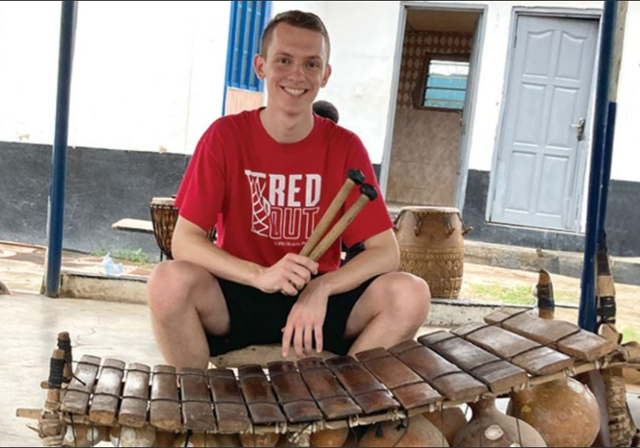
There are three ways to pursue your project:
- Research
- Creative Arts
- Community Engagement
Those whose project require more resources and time can apply to become Endowed Fellows, with financial support up to $5,000.
Global Perspectives
During the dinner, international students and staff from a particular part of the world will speak informally about their culture and experience while attendees enjoy authentic food from the speakers' home country.

Faith and Fantasy Literature
An Honors College tradition since 2012, Harry Potter Week separates the art from its author and celebrates the fandom of Harry Potter for the whole campus. Escape rooms, scavenger hunts, Honeydukes parties, and trivia contests all culminate in one big Harry Potter carnival with games and prizes galore. Students in our long-standing honors tutorial course, Theological Worlds of Harry Potter, transform spaces on campus to transport us all to Hogwarts and beyond.

Community Engagement
Based in the Honors College since 2011, the partnership between Duquesne University and August Wilson House is dedicated to continuing the literary, historical and artistic legacy of Pittsburgh playwright and poet August Wilson. Since its founding, the partnership has engaged in a variety of activities including student-created business plans, communications and events.
The partnership between Duquesne University and August Wilson House is dedicated to continuing the literary, historical and artistic legacy of Pittsburgh playwright and poet August Wilson. This benefits students as a course which approaches social justice issues such as community trauma, poverty, and inequity head-on by working side-by-side with community partners in the Hill District.
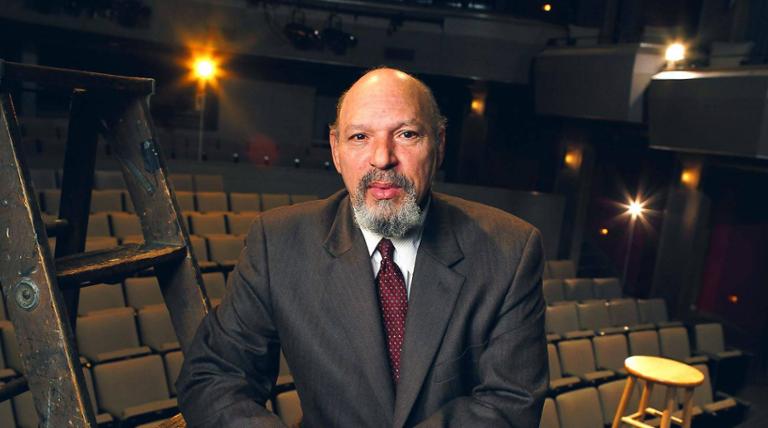
Registration Information Session
Fall semester program, geared towards freshmen, occurs about a week before early registration begins. This program entails inviting successful upperclassman in every program to attend and share their knowledge of courses, registration, professors etc. to first-year students and new members of the Honors College.
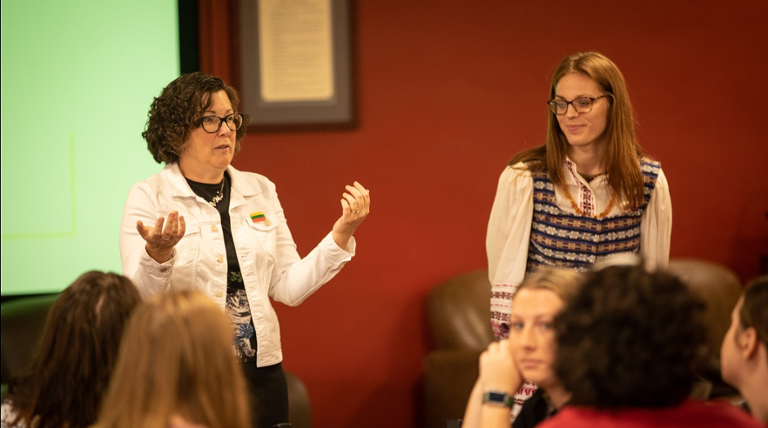
Break From Your Devices
Students are challenged to take a daylong break from phones and social media to focus on solely reading books in this all-day competition. Meals are provided to students as they try to outlast each other and take part in discussions about their reading selections.
Get to Know Faculty and Staff
This weekly event offers Honors College students a free breakfast with various faculty and staff around Duquesne, providing an intimate setting to get to know other departments outside of the classroom.

Honors College Student Organization
The HCSEE provides a vibrant social outlet and helps students hone leadership skills. The HCSEE organizes service projects and academic interest programs, including Race to the Campus and the Duquesne University Academic Challenge (DUAC). Through HCSEE, students build friendships, explore new ideas, and expand their networks. Members may hold various elected positions and offices within the society.
Become an Endowed Fellow
Dive into your passion, no matter where it takes you
Helping You Reach Your Goals
It is not uncommon for Honors students to pursue scholarships and fellowships that take them around the world. Our Office of Student Fellowships is housed in the Honors College. We have an entire office dedicated to walking alongside you through the application process. It is our joy to support you as you pursue such incredible goals.
Contact Us






